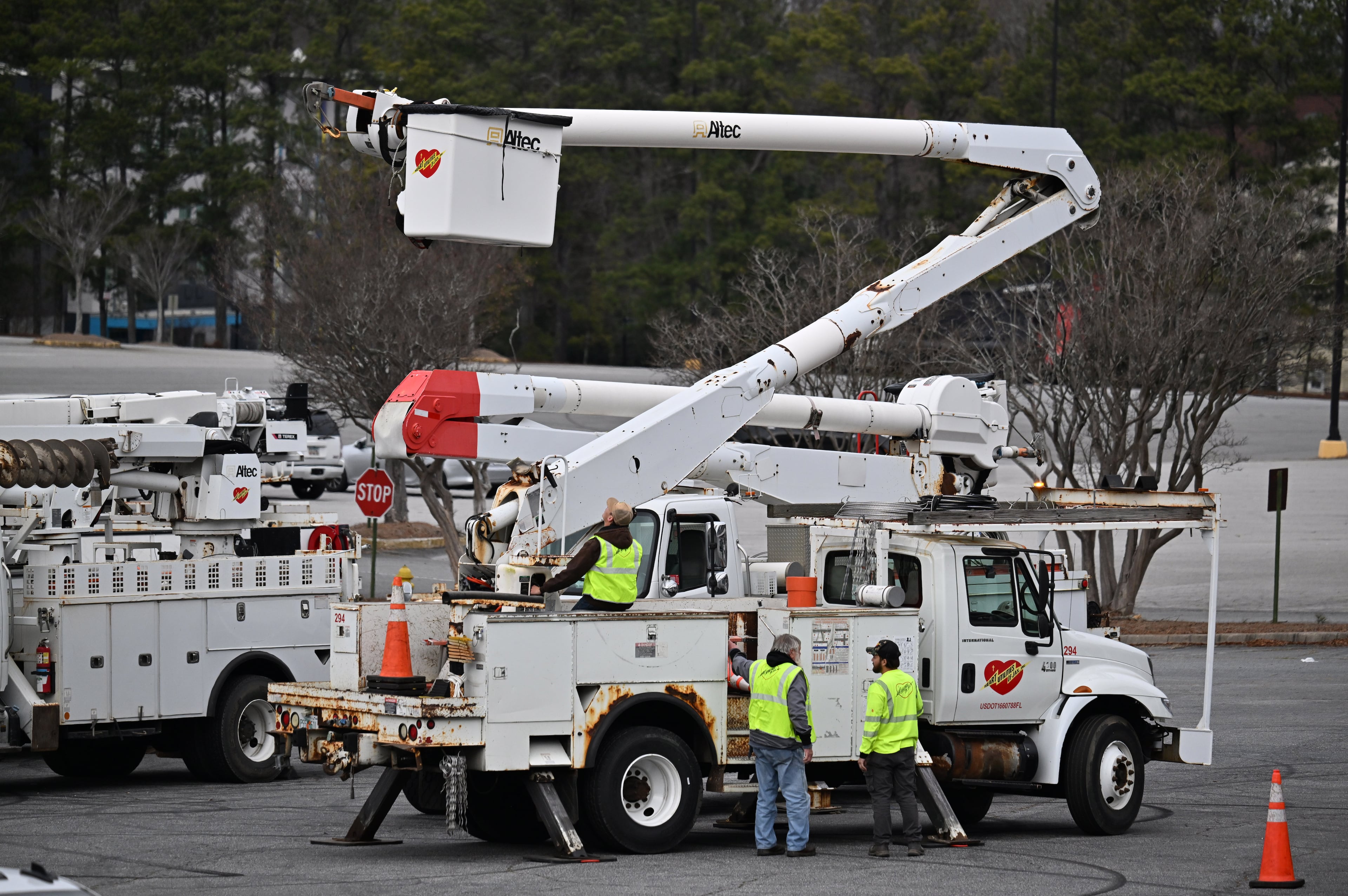Home Depot buys SRS Distribution in huge play for home contractors

Home Depot, the home improvement giant, said Thursday it will buy SRS Distribution for $18.3 billion, the largest acquisition ever by the company, as the retailer pushes deeper into the market serving residential contractors.
Texas-based SRS, which has more than $10 billion in annual sales, serves several sectors of the home renovation market, including roofers, landscapers and companies that install pools.
The deal will both complement Home Depot’s current business and add new pathways for sales, said Ted Decker, the company’s chair, president and chief executive officer, during a conference call Thursday morning.
“We can expose their catalog to our customers and we can improve the convenience to their customer,” he said. “We are building our capacity to get more share of wallet for the complex project.”
Home Depot officials said they are not expecting trouble navigating regulatory hurdles on the way to closing later this year.
Home Depot has more than 2,000 stores and distribution centers in the U.S. SRS has more than 2,500 sales team members, a fleet of more than 4,000 trucks and 760 locations in the U.S. SRS has 20 locations in Georgia, officials said.
The huge gambit is an extension of Home Depot’s forays into the vast and fragmented market for the contractors who do projects for homeowners and builders. It is an enormous bet: The purchase is more than twice the price of Home Depot’s purchase of HD Supply four years ago.
The company believes that the purchase of SRS adds $50 billion to Home Depot’s “addressable market” — that is, the amount of yearly spending it can go after. That potential business is now nearly $1 trillion, the company said Thursday.
Home Depot is the largest Georgia-based company by sales and second only to UPS in the size of its workforce. The Vinings-based company has 2,335 retail stores, including locations in in all 50 states. Home Depot employs about 465,000 people.
The deal looks like a winner, said Ana Garcia, an analyst at CFRA Research. “We do think that there will be some nice synergy opportunities.”
While not retreating from its retail business, the company is adapting to shifts in the market.
Last year, with interest rates high and consumers more cautious about their spending, the company’s revenues dipped to $152.7 billion, down 3% from the year before. In recent years, the company has been adding ways for contractors and larger buyers to get materials and services from Home Depot.
The company has pushed hard into e-commerce and has opened four distribution centers sharply focused on the larger materials that contractors need. Last year, Home Depot purchased Construction Resources, which sold and distributed stone and porcelain tiles.
Decker said the combination of the companies’ networks and Home Depot’s diverse product line “provides the residential pro customer with more fulfillment and service options than ever before. I look forward to welcoming the entire SRS team to The Home Depot and capturing the exciting opportunity ahead.”
The strategic bet is, at its heart, a complex calculation that depends on the housing market. Demand for materials and services has splintered, and Home Depot is trying to exploit the market’s new directions.
Home prices have decelerated recently, but over the past several years, values are up dramatically. In sum, U.S. homes are now worth more than $45 trillion, Decker said.
Yet current homeowners have often been reluctant to sell, since their existing mortgage rates are so much lower than what they would have to pay if they buy another home.
That “locked-in” effect means many owners are spending money on maintenance, improvements and renovation.
Meanwhile, experts say there is a massive shortage of homes, thanks to the aftermath of the Great Recession, in which construction was minimal. So homebuilders are trying to catch up, and while building is nowhere near pre-recession levels, it is up.
And that means demand for materials and services, but a different sort, and different scale, than with either do-it-yourselfers or the contractors who do repairs.
Yet the company has not abandoned its core of do-it-yourselfers and small contractors.
For instance, the company recently announced a large marketing offensive, becoming an official corporate partner of the National Collegiate Athletics Association. That move will put the company brand in front of tens of millions of consumer eyeballs by giving Home Depot the right to promote itself during 90 championships, including this month’s much-watched men’s and women’s basketball competitions.
The SRS acquisition will be funded by a mixture of cash and debt, Home Depot said. The SRS management team, which was not part of the conference call Thursday, will remain with the company.
SRS is owned by private investors. In a statement, Dan Tinker, SRS president and CEO, said the melding with Home Depot will mean more revenues for SRSA.
“We believe this will enable us to better serve pros and continue growing in our large and highly fragmented market,” he said.
Unlike some mergers, this acquisition should not mean even a temporary stall-out of expansion on either side, said Richard McPhail, Home Depot’s chief financial officer, during the conference call. ”This is a growth company buying a growth company. Our financial objectives are growing sales and earnings as fast as possible. This is all about accelerating sales growth with our customers. Full stop.”
Home Depot stock closed Wednesday afternoon with a slight bump higher at $385.95 a share, about $5 a share below its 52-week high which was reached earlier this month. The shares on Wednesday were trading 36% above the level of a year ago.
Thursday morning, the stock shed $6.50 a share in the first hour of trading, but rebounded during the day. As the trading day ended, Home Depot shares were selling for $383.60, down $2.38 a share on the day.
CFRA analyst Garcia said she thinks this will not be the end of Home Depot’s acquisitions, but future targets are likely to be less ambitious.
“Given SRS’s acquisition activity, we think they will also bring a wealth of knowledge about smaller players and potential acquisition targets,” she said.
For his part, Decker said that Home Depot sees the SRS acquisition as an accelerant, potentially worth far more than the purchase price, but that doesn’t mean more big-ticket purchases are on the table, Decker told analysts during the conference call. “We are not looking to replicate this anytime soon.”




